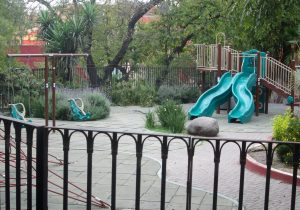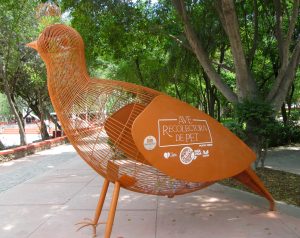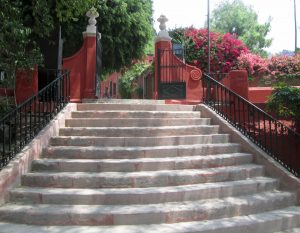Let’s pretend, just for a moment, shall we, that you are here with me.
“Here” is San Miguel de Allende, in the central mountains – the heart — of Mexico, which was built as a fortress in the mid-16th century. This sturdy city, made mostly of stone, has survived many onslaughts over the years (Google its history); and it will, I’m sure, survive the current one.
Everyone here, for the most part now, is behind their own barricades, hoping and praying that this COVID-19 pandemic-pestilence will pass us by. The streets are essentially empty. Doors that were once open for business are shut tight. Only those enterprises that provide necessities, like grocery stores and pharmacies, are still operating. This beautiful, old, colonial city of over sixty thousand residents is eerily quiet — and devoid of its lifeblood, tourists.
San Miguel may be gasping a little now, but it will survive. And so will we all, if we stay well.
One of the ways I’m striving to stay well is by walking in “my” park every day. This park is Parque Juarez, one of the jewels of this city, located not far from my studio apartment. I call the park mine because it is my haven, my sanctuary, my little paradise. It’s where I go to test my physical endurance and to restore my soul. And its gates are still wide open to all of us.
Come, let me show you my park, so you can enjoy it too:
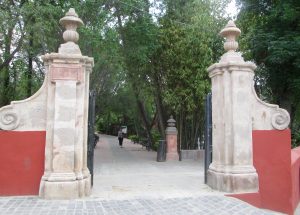
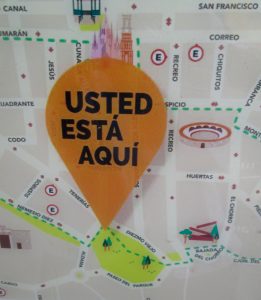
Normally, there are at least a few teens in the gazebo, practicing their dance steps (especially Hip Hop) to the music from their boom-boxes. But not this week.
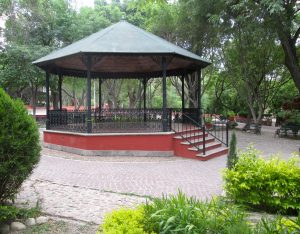
Similarly, since the children’s playground has been closed, there are no happy little Mexican kids laughing and squealing here.
Parque Juarez, which was established at the beginning of the last century following a French design, was recently entirely refurbished and made to look like new, with solid new kiosks, two new basketball courts, new walkways and brickwork, and even a huge, wire, bird sculpture that “eats” plastic in order to recycle it:
Few people are using the park these days, and those that are, are keeping their distance. I’m wearing one of the face masks I’ve made, just to be on the safe side — which, sadly, reminds me with every breath that all of us, all over the world, are living through strange, strange times.
But then I think about the constants that surround me in this park: the dappled sunlight filtering through the hundred-year-old trees, the rustling sound coming from the stand of bamboo, the birds swooping and singing all around, the monarch butterflies flitting through the pollinators’ garden, the purple-petaled jacarandas now in bloom. These things remind me that life goes on and Nature will endure.
Time to take the stairs now and walk home. And hunker down. Behind my barricade.

